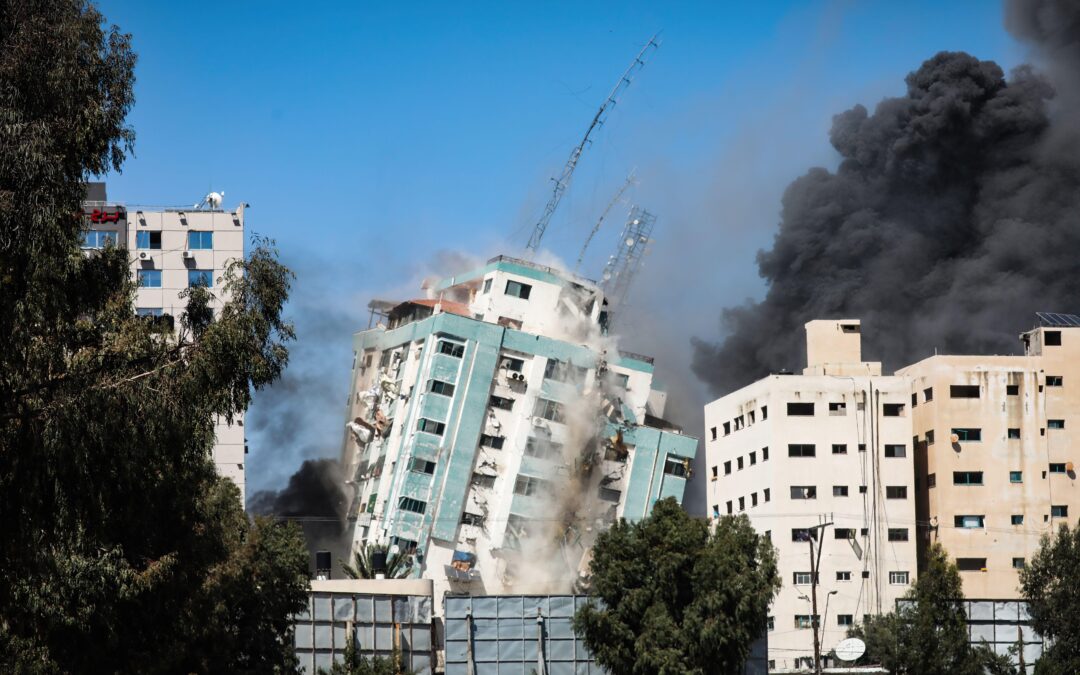
Al Jazeera condemns destruction of its offices in Gaza
Al Jazeera condemns destruction of its offices in Gaza
Al Jazeera issued the following press release:
Al Jazeera condemns in the strongest terms bombing and destruction of its offices by the Israeli military in Gaza, and views this as a clear act to stop journalists from conducting their duty to inform the world and report events on the ground. Al Jazeera vows to pursue every available route to hold the Israeli government responsible for its actions.
Residents and occupants of Al Jalaa building, which houses Al Jazeera’s offices along with major international media outlets, such as AP, and Middle East Eye, were informed by the Israeli army via a phone call that they had less than one hour to vacate the building.
Al Jazeera calls on all media and human right institutions to join forces in denouncing this ruthless bombing and to hold the government of Israel accountable for deliberately targeting journalists and media institutions.
Commenting on the bombing of Al Jalaa building, Dr Mostefa Souag, Acting Director General of Al Jazeera Media Network said, “We call on the international community to condemn such barbaric actions and targeting of journalists and we demand an immediate international action to hold Israel accountable for its deliberate targeting of journalists and the media institutions.”
Dr Souag continued, “The aim of this heinous crime is to silence the media and to hide the untold carnage and suffering of the people of Gaza.”
“The destruction of Al Jazeera offices and that of other media organisations in Al Jalaa tower in Gaza is a blatant violation of human rights and is internationally considered a war crime. We call on all media and human rights institutions in denouncing this heinous crime, and to stand with Al Jazeera and other media organisations targeted by the Israeli army, despite knowing their use of the building as their headquarters for many years.”
Al Jazeera promises its audience to continue its coverage and to uncover the truth of what is happening in Gaza, the Palestinian Territories and in Israel, regardless of the attempts to suppress it. The assault on the building hosting international media institutions aims to silence the truth by killing the messenger.
Journalism is not a crime.
[Source: Al Jazeera press release]
[Photo by Nidal Alwaheidi / SOPA Images/Sipa USA via Alamy]

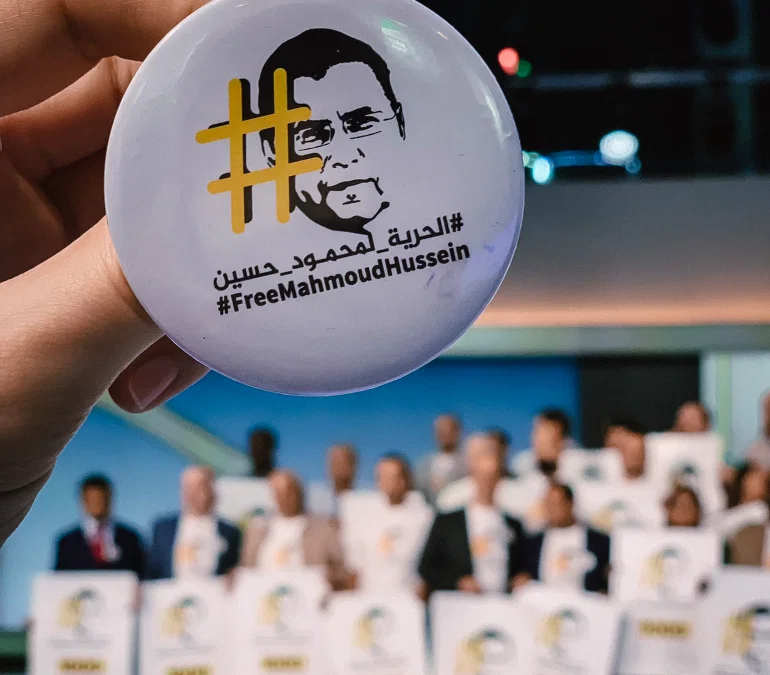
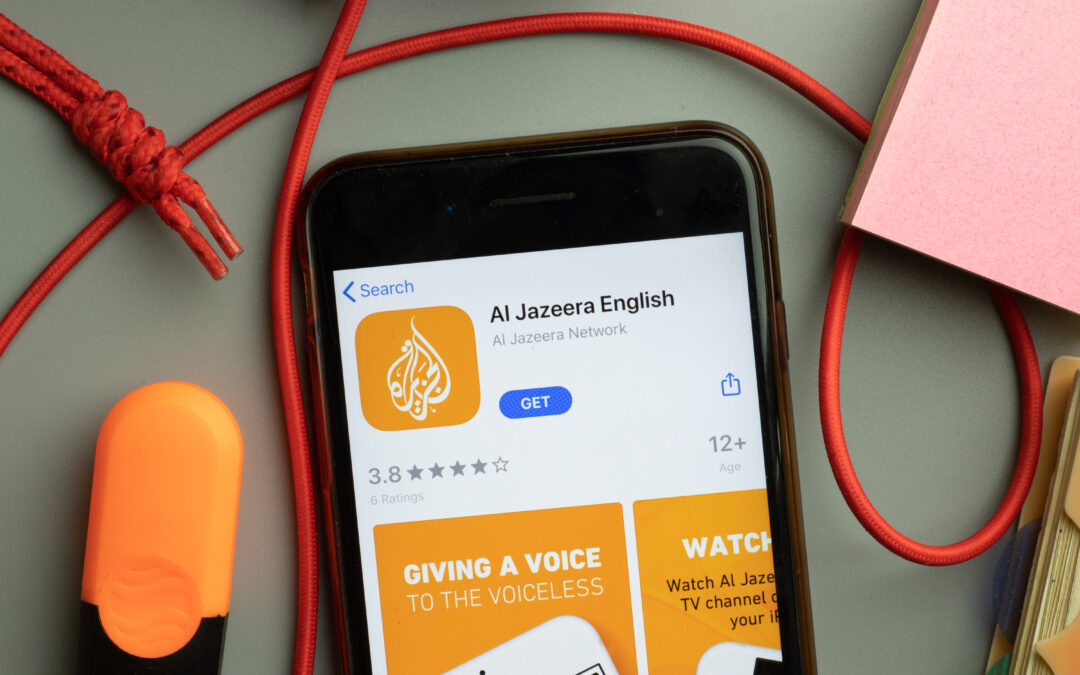
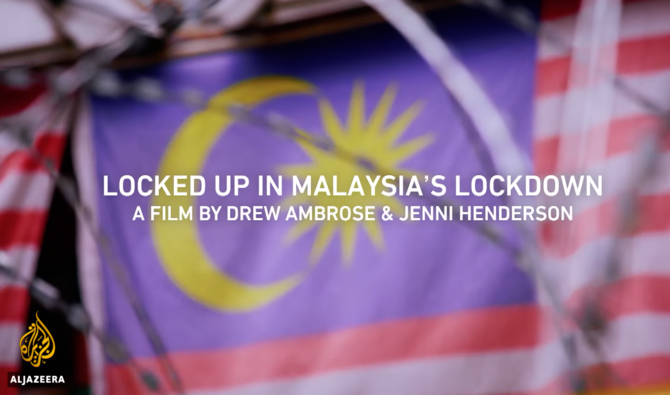
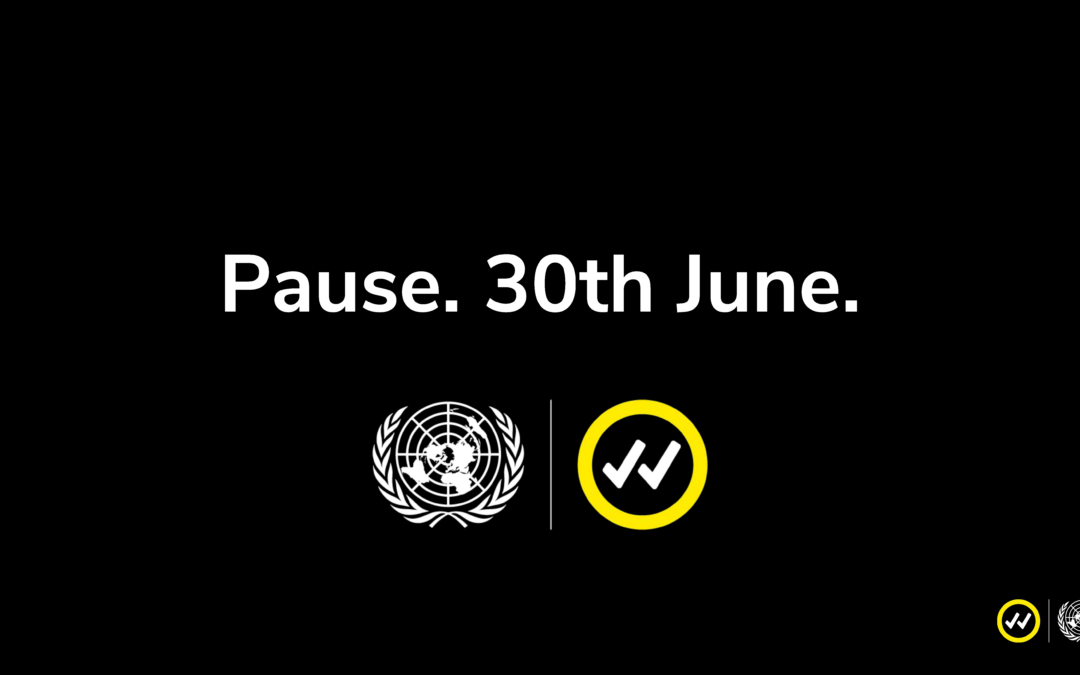
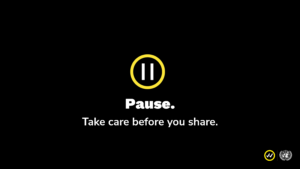 Major social media platforms, including Facebook, Twitter, Google (YouTube) and TikTok, have also committed to promoting Pause, while indicating a willingness to scale up their ongoing efforts to suppress the circulation of misinformation.
Major social media platforms, including Facebook, Twitter, Google (YouTube) and TikTok, have also committed to promoting Pause, while indicating a willingness to scale up their ongoing efforts to suppress the circulation of misinformation.